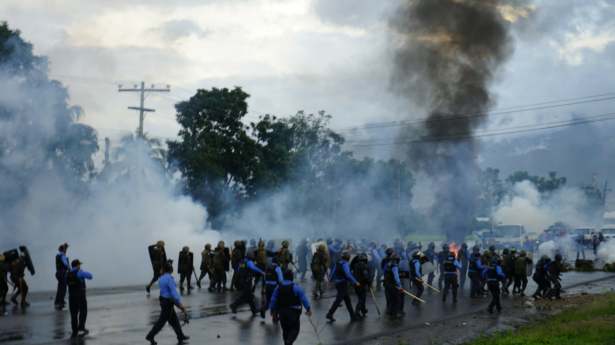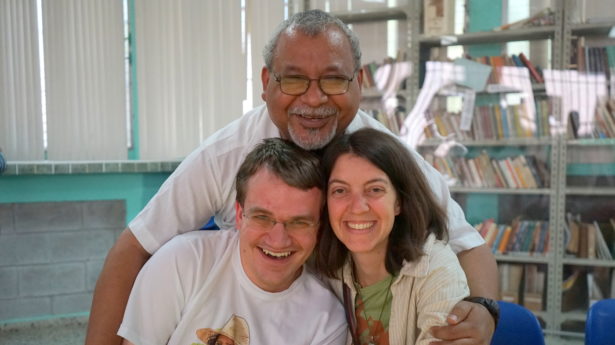The Unitarian Universalist Service Committee advances human rights through grassroots collaborations.
Four Things You Should Know About the Central American Caravans
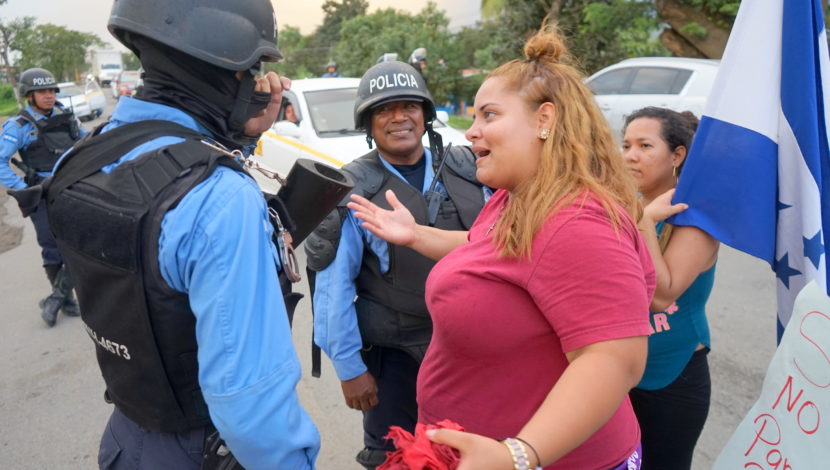
By on October 24, 2018
This past week, media have been full of news about caravans of Central American asylum seekers and migrants traveling from Honduras to the United States, provoking irate and ill-informed responses from several U.S. politicians, including Donald Trump. As in the past, the President’s responses have been misleading, alarmist, and poisoned by racism and xenophobia.
To help douse fear-mongering with real information, here are four things you should know:
- People flee Central America because they have no choice.
People don’t undertake an extremely dangerous journey from Central America to Mexico or the United States on a whim; they leave because staying is not an option. A report of the findings of a recent UUSC delegation to Honduras provides accounts of human rights violations committed by Honduran security forces with impunity, including torture, beatings, and other extreme ill-treatment. Several of these security forces implicated in these reported abuses receive U.S. funding.
The delegation also met with communities displaced by U.S.-funded development projects and heard testimony from civil society leaders about the pervasive impunity in Honduras for crimes against women and girls, which has left the vast majority of victims of femicide and other forms of violence against women with no recourse from the state.
When a person’s own government fails to protect their most fundamental human rights – or openly violates them – people have no choice but to seek asylum across borders.
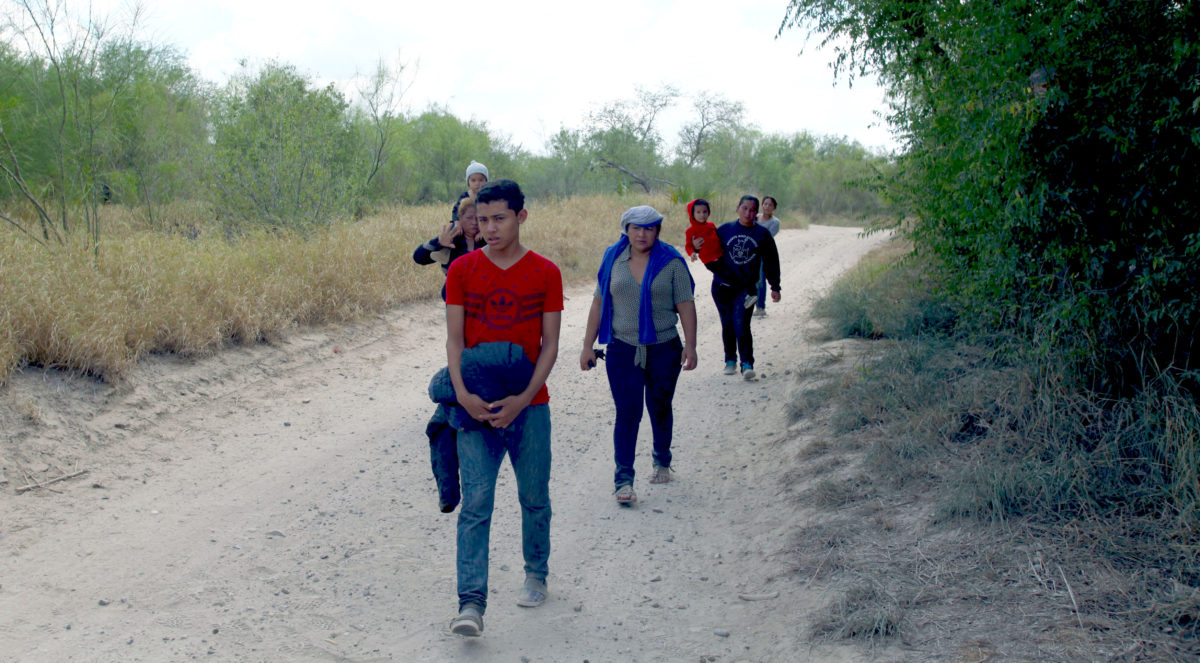
- The caravans do not represent an overall increase in migration.
The recent increase in caravans reflects a different way of traveling to seek safety, not an absolute increase in the number of people migrating to Mexico and the United States. While recent months have seen an upturn in the number of people apprehended at the southern U.S. border, this does not change the fact that relative to migration levels of the previous two decades, we are still in the midst of a period of historically low levels of migration across the U.S. southern border.
People choose to travel as a caravan as a way to stay safe on the migration trail. In a region where migration routes are often controlled by organized crime and smuggling networks, migrants and asylum-seekers often face a binary choice between paying thousands of dollars to a smuggler or traveling as part of a larger group to help provide mutual protection.
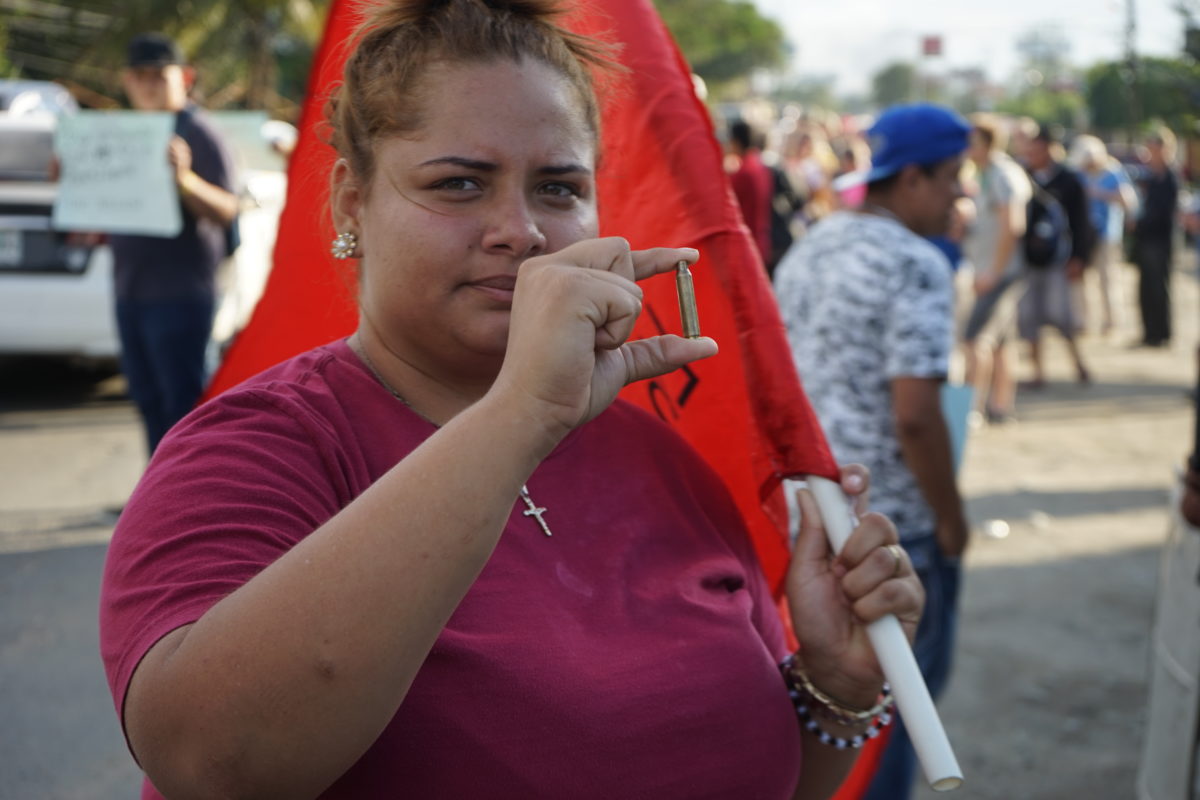
- People fleeing for their lives will not and should not be deterred.
In response to the recent uptick in arrivals at the southern U.S. border, the Trump administration has threatened a range of extreme policy responses, including indefinite detention of families traveling with children and reviving the globally-reviled family separation policy. These policies are framed with the explicit goal of deterring migrants and asylum seekers from crossing the border.
In addition to being a violation of human rights norms and basic morality, this deterrence strategy is doomed to fail on its own terms. People traveling through Mexico already face extreme dangers along the route. Since 2010, mass graves of migrants have been uncovered in Mexico in which as many as 72 people were massacred and buried in a single location. According to a 2017 report co-authored by UUSC’s partners in Mexico, the Fundación Para la Justicia y El Estado Democrático de Derecho, 99% of crimes committed against migrants in Mexico go unpunished.
Subjecting families who have survived these horrors to indefinite detention or separation from their children will not dissuade people who are already willing to face mortal peril in the hopes of getting themselves and their family members to safety. These policies will merely layer gratuitous cruelty on top of an already deadly regional migration system that U.S. policies have in part helped to create.
- The United States and the countries along the route cannot block people from asylum.
In his responses to the caravans, President Trump has threatened to withhold humanitarian aid, close the southern U.S. border, and call in the U.S. military in an attempt to pressure Mexico, Guatemala, and other Central American countries to either block the caravans from entering their territory or prevent their citizens from leaving their borders. In doing so, Trump is trying to cajole neighboring governments into violating several fundamental human rights provisions.
U.S. and international law both recognize a right to seek asylum across borders, regardless of the means by which a refugee entered the territory of the country where they are seeking safety. Four of the nations of Central America, including Honduras and Guatemala, have signed an agreement that allows free movement between them for temporary periods. The Universal Declaration of Human Rights recognizes a fundamental right to leave the borders of one’s home country. None of the nations in our shared region, including the United States, can deny access to asylum seekers without a grave breach of human rights norms.
Any U.S. response to the Central American caravans must be guided by principles of compassion and equity, as well as a recognition of our own government’s complicity in the conditions forcing people to flee. Instead of devising the tortures of family separation and prolonged detention in a futile effort to deter people whose lives are already at risk, the U.S. government would do well to remember the words of Langston Hughes in his poem “Refugee in America,” which he wrote in contemplating the feelings of a refugee beholding the Statue of Liberty for the first time:
“There are words like Liberty
That almost make me cry.
If you had known what I knew
You would know why.”
